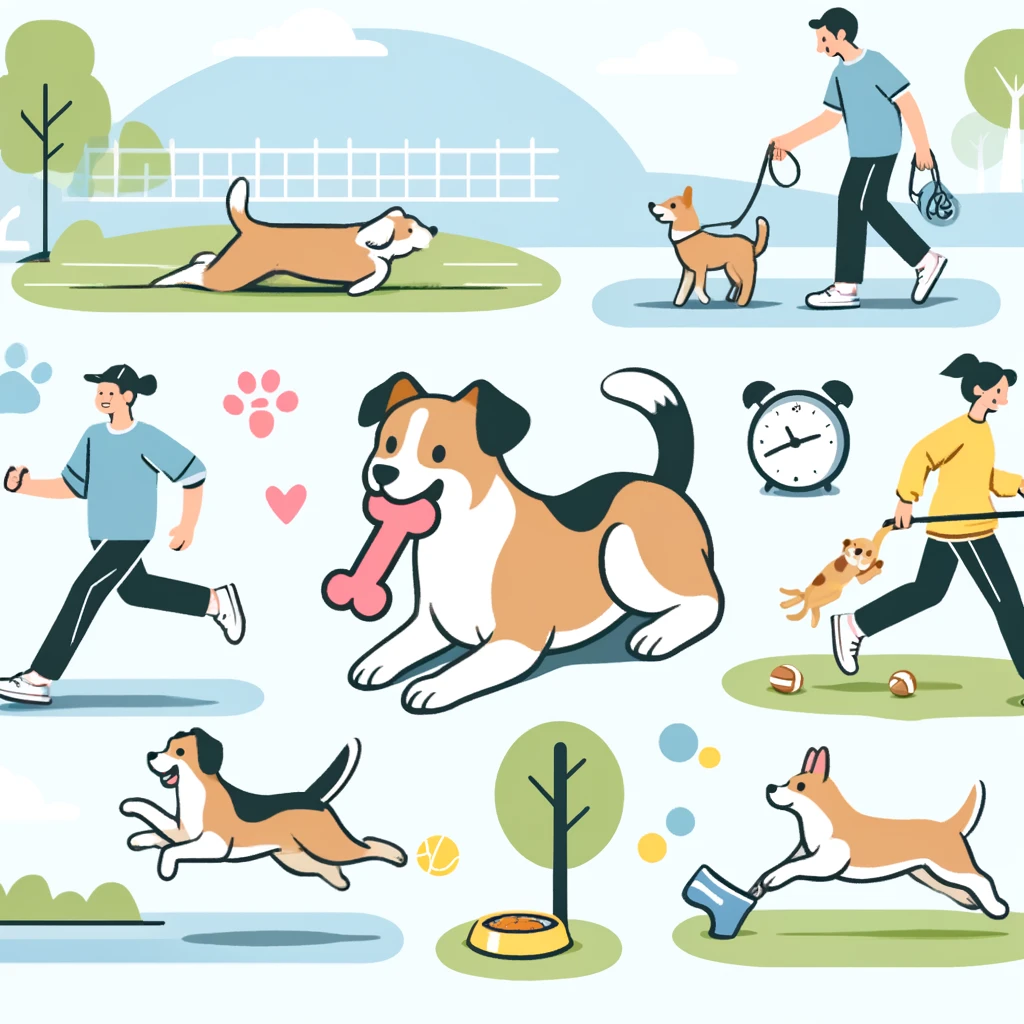
How Much Exercise Does My Dog Need Every Day?
As a responsible dog owner, it is important to provide your furry friend with the right amount of exercise to keep them happy and healthy. The exercise needs of dogs can vary depending on their breed, age, size, and overall health. While some dogs require more exercise than others, there are general guidelines that can help you determine how much exercise your dog needs every day.
Factors to Consider
When determining the appropriate amount of exercise for your dog, there are several factors to consider:
- Breed: Different breeds have different exercise requirements. High-energy breeds such as Border Collies or Labrador Retrievers will generally require more exercise compared to low-energy breeds like Bulldogs or Basset Hounds.
- Age: Puppies have lots of energy and may require shorter bursts of exercise throughout the day. As dogs get older, their exercise needs may decrease, but it is still important to keep them active to prevent weight gain and maintain muscle tone.
- Size: Larger dogs tend to have more energy and may need longer walks or more vigorous exercise compared to smaller breeds.
- Health: Dogs with certain health conditions may have limitations on the amount and intensity of exercise they can handle. Always consult with your veterinarian if you have concerns about your dog’s health or exercise routine.
General Guidelines
While there is no one-size-fits-all answer to how much exercise your dog needs, there are some general guidelines you can follow:
- Daily Walks: Most dogs benefit from at least one or two walks every day. The duration and intensity of the walk will depend on your dog’s individual needs. Aim for at least 30 minutes to an hour of exercise per day.
- Playtime: In addition to walks, dogs also need regular playtime to stay mentally stimulated and burn off excess energy. This can include games of fetch, tug-of-war, or interactive toys that encourage physical activity.
- Off-Leash Time: If your dog is well-trained and has good recall, allowing them off-leash in a safe and secure area can provide additional exercise and freedom to explore.
- Mental Stimulation: Physical exercise is important, but mental stimulation is equally vital for a dog’s overall well-being. Incorporate activities such as puzzle toys, obedience training, or scent games to keep their minds sharp.
- Adjust for Individual Needs: Remember that these guidelines are just a starting point. Some dogs may require more exercise, while others may need less. Pay attention to your dog’s behavior and adjust their exercise routine accordingly.
Signs of Inadequate Exercise
It is important to recognize signs that your dog may not be getting enough exercise. Dogs that do not receive adequate exercise may exhibit the following behaviors:
- Excessive Barking: If your dog is barking excessively, it may be a sign that they are bored or have pent-up energy.
- Destructive Behavior: Dogs that are not sufficiently exercised may resort to destructive behaviors such as chewing furniture or digging holes in the yard.
- Weight Gain: Lack of exercise can lead to weight gain in dogs, which can have negative effects on their overall health and well-being.
- Restlessness: Dogs that are not getting enough physical activity may become restless or exhibit signs of anxiety.
If you notice any of these behaviors in your dog, it may be a sign that they need more exercise. Consult with your veterinarian to determine the best course of action.
Providing your dog with the right amount of exercise is crucial for their physical and mental well-being. By considering factors such as breed, age, size, and health, you can determine the appropriate amount of exercise for your furry friend. Remember to start slow and gradually increase the intensity and duration of exercise to avoid overexertion. Regular exercise, combined with a balanced diet and regular veterinary care, will help ensure that your dog leads a happy and healthy life.